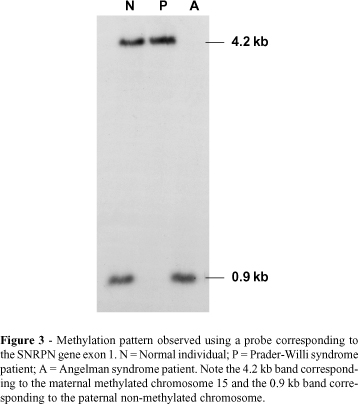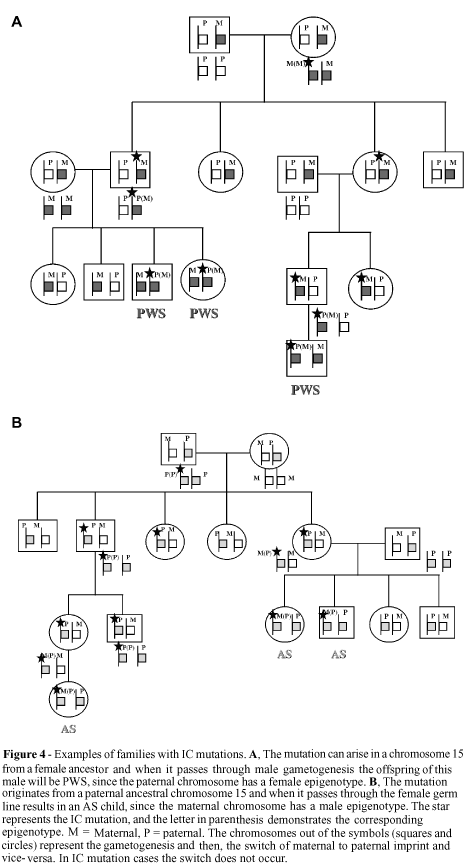Chromosomal 15q11-q13 region is of great interest in Human Genetics because many structural rearrangements have been described for it (deletions, duplications and translocations) leading to phenotypes resulting in conditions such as the Prader-Willi (PWS) and Angelman (AS) syndromes which were the first human diseases found to be related to the differential expression of parental alleles (genomic imprinting). Contrary to Mendelian laws where the parental inheritance of genetic information does not influence gene expression, genomic imprinting is characterized by DNA modifications that produce different phenotypes depending on the parental origin of the mutation. Clinical manifestation of PWS appears when the loss of paternally expressed genes occurs and AS results from the loss of a maternally expressed gene. Different genetic mechanisms can lead to PWS or AS, such as deletions, uniparental disomy or imprinting mutation. In AS patients an additional class occurs with mutations on the UBE3A gene. Studies of PWS and AS patients can help us to understand the imprinting process, so that other genomic regions with similar characteristics can be located, and different syndromes can have their genetic mechanisms elucidated.




